Literature for Justice: Seven Books that Rethink Mass Incarceration
A Reading List from the National Book Foundation
In 2017, the National Book Foundation began the Literature for Justice program to highlight books that contribute to the dialogue around mass incarceration and justice. Since then, the need for those perspectives has only grown, and this year’s list adds seven more titles to help us think through these issues.
For the program’s third and last year, the NBF worked with a panel of judges that included Susan Burton, founder of A New Way of Life Reentry Project; poet Natalie Diaz; Eddie S. Glaude Jr., chair of African American Studies at Princeton University; Mariame Kaba, organizer and founder of Project NIA; and Piper Kerman, author of Orange is the New Black. The books they chose range from a study of the art of incarceration to memoir, biography, and research into the effects of the prison system.
Here are their selections:
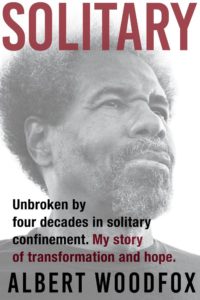
Albert Woodfox with Leslie George, Solitary
(Grove Press / Grove Atlantic)
“A candid, heartbreaking, and infuriating chronicle . . . as well as a personal narrative that shows how institutionalized racism festered at the core of our judicial system and in the country’s prisons . . . It’s impossible to read Solitary and not feel anger . . . A timely memoir of that experience that should be required reading in the age of the Black Lives Matter movement. It’s also a story of conviction and humanity that shows some spirits are unbreakable.” –NPR

Dionne Brand, Ossuaries
(McClelland & Stewart / Penguin Random House Canada)
“Brand’s luscious and ferocious lines go beyond a critique of dystopian realities to construct, in themselves, in their keen, lyric intelligence, an oasis of truth, compassion, and sensuality.” –Jury Citation, Griffin Poetry Prize
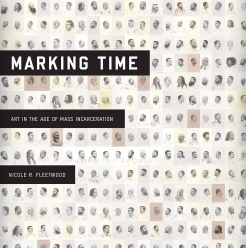
Nicole R. Fleetwood, Marking Time: Art in the Age of Mass Incarceration
(Harvard University Press)
“Nicole Fleetwood’s illuminating narrative centers and amplifies the brilliant aesthetic engagements of those most impacted by the carceral regime. Through stunningly original cultural analysis, visionary curation, and intellectual tenacity, Marking Time confronts the violence of captivity and propels readers toward a future without cages. This book is an extraordinary achievement.” –Sarah Haley, author of No Mercy Here: Gender, Punishment, and the Making of Jim Crow Modernity
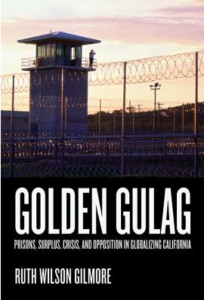
Ruth Wilson Gilmore, Golden Gulag: Prisons, Surplus, Crisis, and Opposition in Globalizing California
(University of California Press)
“Gilmore’s historical, geographical, and organizational approach provides a useful point of reference for the state’s current efforts to downsize the prison population and relieve overcrowding. She encourages activists and scholars to consider previous institutional indiscretions when determining strategies for future reform. In approaching prisons as institutions governed by a ‘set of relationships that undermine rather than stabilize everyday lives everywhere,’ Gilmore calls for the recognition of the prison state as an ‘antistate’ dependent on the ‘ideological and rhetorical dismissal of any agency or capacity that ‘government’ might use to guarantee social well-being.’ Activists must re-interrogate the uses of capital and recognize similarities in circumstances and interests between the rural communities that host prisons and the inner-city dwellers who disproportionately fill an ever-growing number of beds.” –M. Catherine Coleman, E3W Review of Books
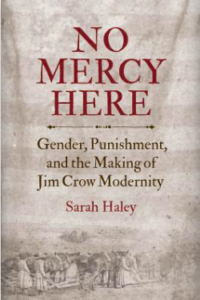
Sarah Haley, No Mercy Here: Gender, Punishment, and the Making of Jim Crow Modernity
(University of North Carolina Press)
“Haley offers an important analysis of a particular group of women: prisoners in Georgia from 1868 to the early 20th century. Astutely mining archival records, the author offers no soft edge to chronicle the ‘unrepresentable’ violence against incarcerate women, especially those of color. Highly recommended.” –Choice

Kelly Lytle Hernández, City of Inmates: Conquest, Rebellion, and the Rise of Human Caging in Los Angeles, 1771–1965
(University of North Carolina Press)
Details how successive authoritarian powers in present-day Los Angeles have targeted and captured people using cages to create what is now one of the world’s largest prison societies, and ends with a call for it to be destroyed. –The New Inquiry
Marshaling more than two centuries of historical data, Hernandez finds that native elimination, immigrant exclusion, and black disappearance drove the rise of mass incarceration in Los Angeles from the Spanish colonial era to the outbreak of the 1965 Watts Rebellion. –Law & Social Inquiry
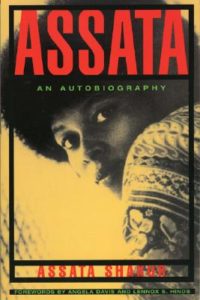
Assata Shakur, Assata: An Autobiography
(Lawrence Hill Books / Chicago Review Press)
“A deftly written book . . . A spellbinding tale.” –The New York Times Book Review
“A compelling tale of the impact of white racism on a sensitive and powerful young black woman.” –Library Journal




















